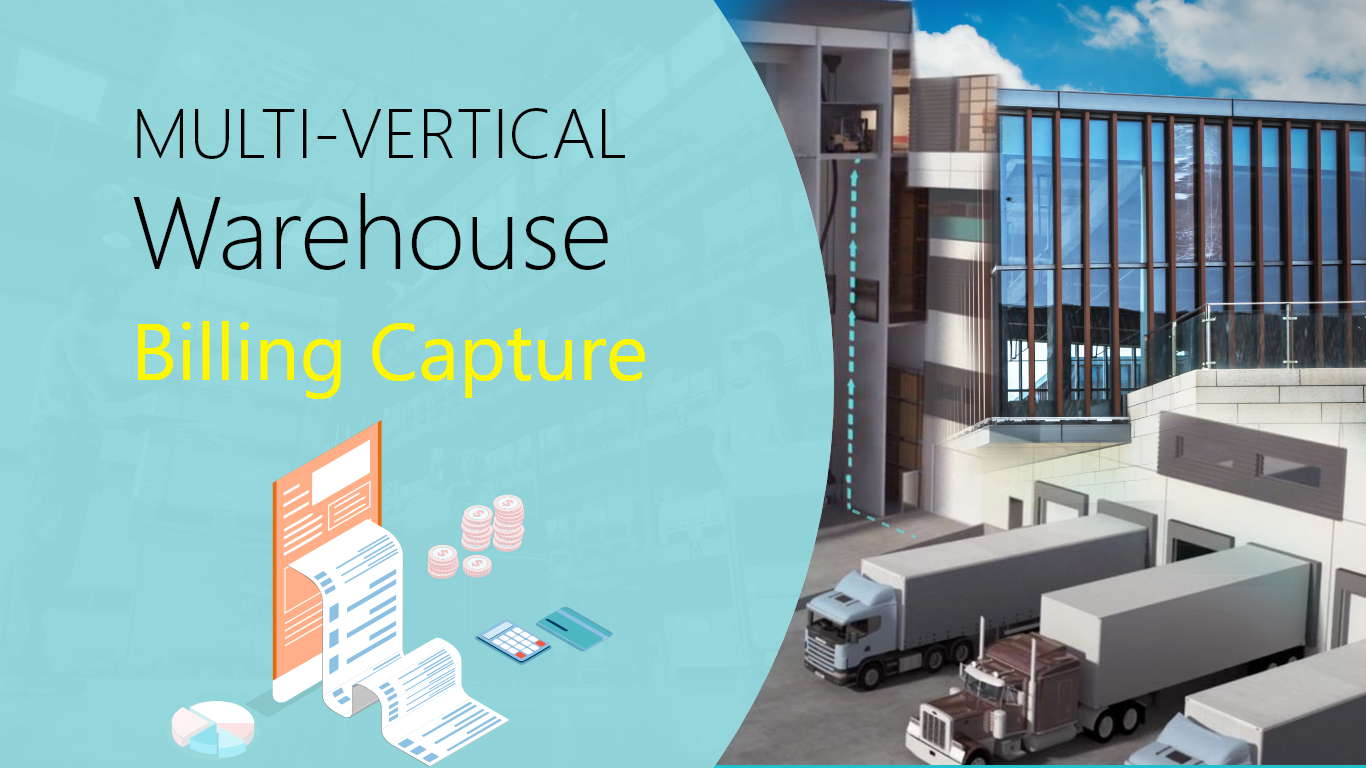Multi-vertical warehouse billing capture refers to the process of recording and managing billing information across different services within the warehousing. This typically involves tracking and calculating charges associated with storing, handling, and managing goods or products for various clients or businesses that operate in different verticals or industries.
Multi-Vertical Warehouse:
This refers to a warehouse that serves clients from multiple industries or verticals. Each vertical might have unique requirements, storage conditions, handling procedures, and billing structures.
It paints a bleak portrait, especially for online retailers. But the real cost driver is this: many customers buy with an explicit plan to immediately return some or all of their items.
Billing Capture:
This involves capturing and recording all the relevant data and information required for accurate billing. This includes details about the goods or products stored, their quantities, storage duration, any additional services provided (such as packaging, labelling, temperature control), and any other relevant charges.
Billing is high priority of any 3pl warehouse
Absolutely, billing is indeed a critical aspect of any third-party logistics (3PL) warehouse operation. Accurate and efficient billing processes are essential for both the 3PL provider and their clients to maintain a healthy business relationship. Here’s why billing is a high priority in the context of a 3PL warehouse:
1. Revenue Generation:
Billing is the primary means through which a 3PL warehouse generates revenue. Proper billing ensures that the warehouse is compensated for its services, including storage, handling, order fulfilment, transportation, and any additional value-added services provided to clients.
2. Client Satisfaction:
Accurate and transparent billing processes contribute to client satisfaction. When clients receive invoices that clearly outline the services provided and associated charges, it builds trust and transparency in the business relationship.
3. Cost Recovery:
3PL warehouses incur various costs related to labour, infrastructure, technology, equipment, and more. Effective billing allows the warehouse to recover these costs and maintain its profitability.
4. Financial Planning:
Accurate billing helps the 3PL warehouse in planning and budgeting. It provides insights into revenue projections, allowing the warehouse to allocate resources appropriately and make informed business decisions.
5.Dispute Resolution:
Billing discrepancies can lead to disputes with clients. Having a well-documented and transparent billing process can help in resolving disputes swiftly and maintaining a positive working relationship.
6. Compliance and Auditing:
In the logistics industry, there are often regulations and industry standards that need to be adhered to. Accurate billing ensures compliance with these regulations and makes the auditing process smoother.
7. Efficiency and Automation:
Implementing efficient billing systems and automation tools can streamline the billing process. This reduces the chances of errors and frees up human resources to focus on more strategic tasks.
8. Data Analysis:
Billing data can provide valuable insights into client preferences, trends, and demand patterns. Analysing this data can lead to better decision-making and the development of more targeted services.
9. Cash Flow Management:
Timely and accurate billing is crucial for maintaining a healthy cash flow. Delays or errors in billing can disrupt cash flow, affecting the warehouse’s ability to meet its financial obligations.
10. Competitive Advantage:
A well-managed billing process can be a competitive advantage for a 3PL warehouse. Clients are more likely to choose a provider that offers transparent and efficient billing, enhancing the warehouse’s market position.
Given the complexity of managing billing across multiple verticals, automation plays a crucial role. Warehouse management systems (WMS) or enterprise resource planning (ERP) systems can help automate the process of capturing, calculating, and generating invoices based on predefined rules for each vertical.
Integration with other systems is important, especially if the warehouse is part of a larger supply chain network. This integration could involve linking the warehouse billing data with order management systems, inventory systems, and customer relationship management systems to ensure consistency and accuracy.
Logix Warehouse Management System is built for integration and offers vast options to integrate with existing systems. The solution supports integration with host enterprise resource planning (ERP), and supply chain solutions (SCS).
Data can be sent and received using industry best practice web services, Json and XML. These integration points can easily be leveraged by material-handling equipment vendors to build integrations for automated warehouses.
All the integrations make the WMS more scalable upto user needs and easy integrations like Carriers, SMS, GPS and E-Com website makes it customer centric. Contact us now to learn more about how LogixWMS can help you to manage multi-vertical warehouse billing.


